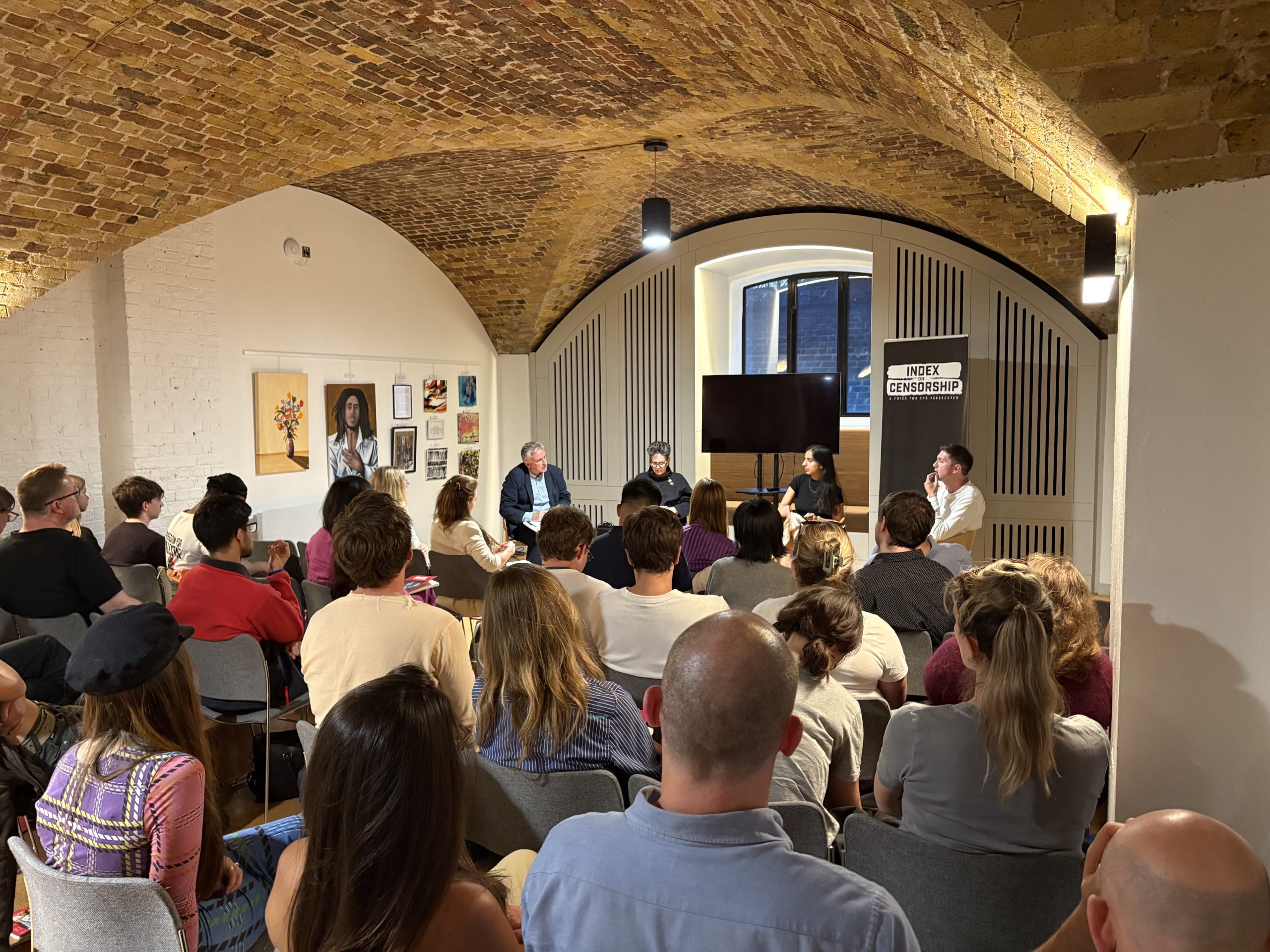There was a full house for the launch of the summer edition of Index this week. The theme was the Trump administration’s war on free expression, and our panel of experts attracted an impressive and noticeably young audience. Some were there to support Anvee Bhutani, from the Wall Street Journal. She’s now based in the UK but previously reported from the frontline of the US government’s attacks on immigrants and protestors. Also speaking were the American historian and journalist Erica Wagner, now working at the Observer, and lawyer Charlie Holt, who specialises in environmental law and is a longtime ally of Index in the fight against SLAPPs (Strategic Lawsuits Against Public Participation).
There seemed to be a consensus that it was now possible to talk about “the American dissident” in light of the administration’s attacks on state-funded media, the legal establishment and academia. Erica caught the mood when she said she was “both shocked and not shocked” by what was going on and Trump’s behaviour. “When people tell you who they are, pay attention,” she said.
Charlie reminded us that Trump has been involved in over 2,000 lawsuits, many of them used to target journalists. As chair of the discussion, hosted by St John’s Church, Waterloo, it felt like the work of Index was more vital than ever. Anvee said she had accepted the invitation when she heard it was about the crackdown on press, protest and academic freedom: “I feel I have seen all three collapse in the last year in America.”
It also felt appropriate that the audience was reminded of Index’s history and tradition as the champion of dissident writers and artists in eastern and central Europe. The Belarusian poet Hanna Komar read from her collaboration with Greek poet Katerina Koulouri using words which the Trump administration has banned federal agencies from using.
It is always good to be reminded of the complexities of the debate over free expression and the final question of the evening provided just this check on complacency. Audience member Marko Begic asked whether we need to reconsider our understanding of the concept of censorship in the third decade of the 21st century. With the populist right and the activist left both claiming their free expression is under threat, we are certainly a long way from the Cold War certainties at the heart of Index’s origin story. But the concept of the dissident remains as powerful as it ever was, whether it is embodied by an exiled Belarusian poet or an American journalist in the progressive tradition.






